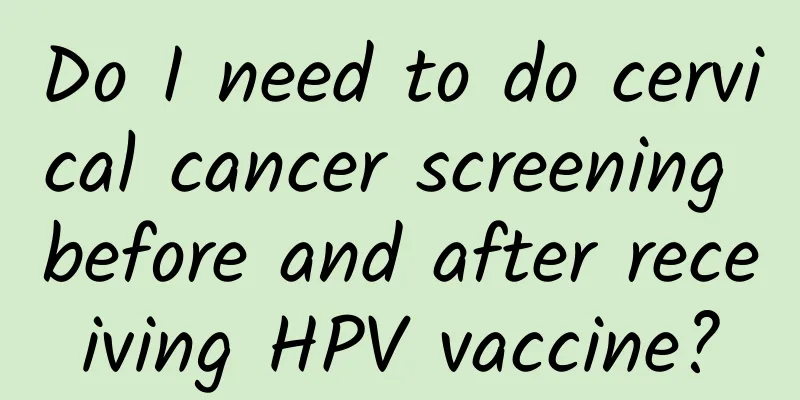Do I need to do cervical cancer screening before and after receiving HPV vaccine?

|
1. Why do you need cervical cancer screening? Unlike other cancers, cervical cancer not only has a clear cause, but also a clear pathogenesis. Persistent infection with high-risk HPV is the main cause of cervical cancer, and its development is a long-term, multi-stage process. It is generally believed that it takes about 10 years for persistent infection with high-risk HPV to develop into cervical cancer. The whole process is divided into three stages: Persistent HPV infection - precancerous lesions (CIN) - cervical cancer. The above characteristics show that we can achieve "early detection and early intervention" to block the progression of the disease. "Cervical cancer screening" is a measure adopted worldwide, which can effectively reduce the incidence and mortality of cervical cancer. In countries or regions with a complete screening system such as North America, Australia and Europe, cervical cancer has been eliminated. In developing countries, because screening is not popular, the incidence and mortality of cervical cancer are still on the rise. There are two groups of people who are extremely in need of cervical cancer screening: The first group is the general population, usually women over 21 years old who have sex should be screened regularly; the second group is the high-risk group, which refers to people with high-risk factors such as "first sexual intercourse age under 18, multiple sexual partners, multiple births, sexually transmitted diseases, smoking". Cervical cancer screening should continue until the age of 65. 2. Do I need to do cervical cancer screening before getting the HPV vaccine? For women who have sex, if they have not participated in effective cervical cancer screening before, it is recommended to do a screening before vaccination. If cervical cancer and precancerous lesions are found, they can receive timely and effective treatment. 3. Do you need regular screening after HPV vaccination? After receiving the HPV vaccine, you still need to do regular cervical cancer screening. No matter which HPV vaccine you receive, it cannot prevent all HR-HPV types. The current bivalent and quadrivalent vaccines target HPV16 and 18 types, and can only prevent about 70% - 80% of cervical cancer. The nine-valent vaccine can only prevent about 90% of cervical cancer. And the vaccine's protective effect on older women is lower than that on younger women. |
<<: Breast cancer screening: choosing the method that's best for you
>>: Eczema: An unexpected dialogue with the skin
Recommend
What should girls pay attention to when they have their first period?
Every girl has to experience her first menstrual ...
What is uterine congestion? Cervical congestion needs attention
Uterine congestion is more common in women with c...
The best daily ratio of sitting, standing, sleeping and moving time is revealed! Follow this to stay healthier
Everyone knows the principles of "combining ...
Why does the car throttle jerky when it starts? What is the problem when the car shakes when it starts?
Experienced car owners must have encountered the ...
Why is there an itchy white spot on the clitoris?
If a woman's clitoris has small white spots a...
How to distinguish good and bad plastic wrap? What are the wonderful uses of plastic wrap in daily life?
In daily life, when keeping meat, fruits, etc. fr...
What to do if you have gynecological fungal infection
I believe that everyone is familiar with the symp...
How to get pregnant quickly
For many parents who want to have children, how t...
Pregnant women want to eat meat. Which kind of meat is good?
After experiencing nausea and vomiting in the fir...
As the weather turns cooler, how can we effectively prevent influenza?
"Doctor, can I get the flu vaccine now?"...
Red palms during late pregnancy
Women are relatively weak during pregnancy, and m...
[2023 "Science Popularization China Youth Star Creation Competition"] "Muscle" cannot be lost, how should we prevent sarcopenia?
The winning works of the 2023 "China Science...
How many lines on the pregnancy test stick indicate pregnancy?
As soon as everyone hears the word "pregnanc...
What to do during pregnancy with neurodermatitis
Women should pay attention to their physical heal...
37 weeks pregnant, pain when the fetus moves
Pregnant women are generally very weak, and they ...









